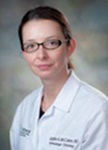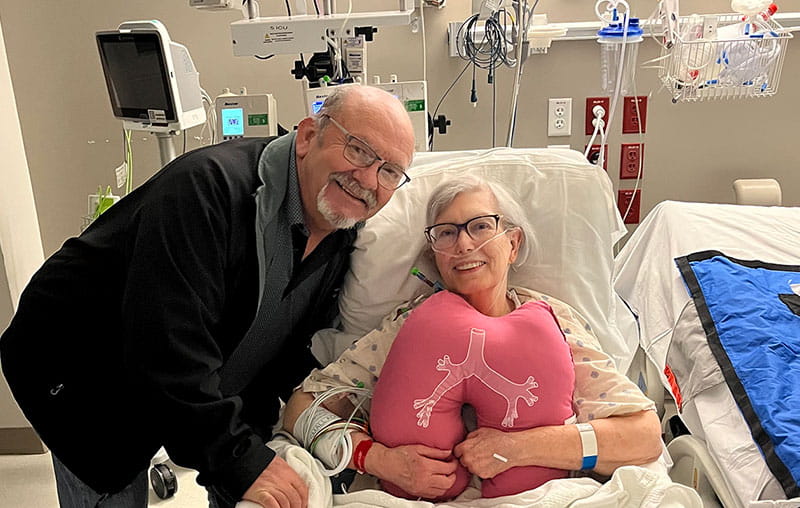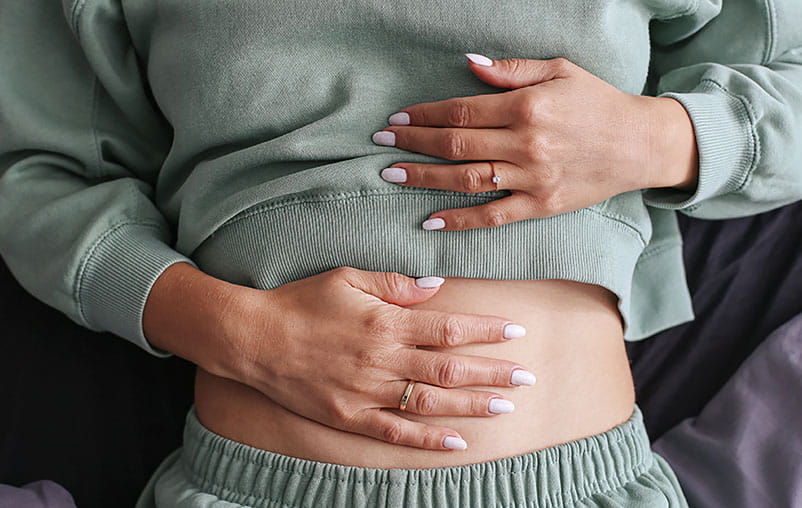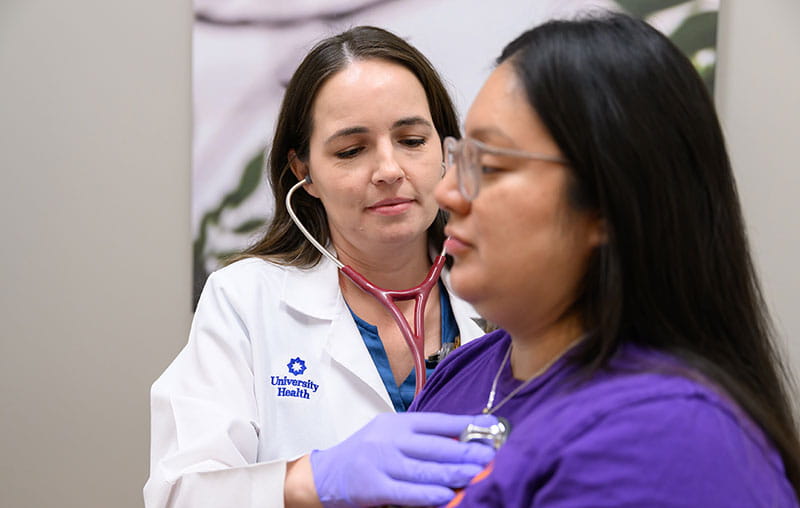The early signs of cervical cancer can be subtle. When Dani Billote went in for a routine health checkup and Pap smear, she had no idea that she had stage I cervical cancer.
“I didn’t have a history of this cancer in my family,” Billote said. “I was just married. I was worried about being able to have children.”
In 2015 Billote was diagnosed by Dr. Georgia McCann, a gynecological oncologist with University Health and associate professor with UT Health San Antonio.
Cervical Cancer Symptoms
Dr. McCann said cervical cancer symptoms can include having an unusually heavy period, abnormal discharge or bleeding between periods. But often, she said, there are no obvious signs for a long time.
That’s why Billote had no idea – and why it was fortunate that she went in for her regular screening.
Cervical Cancer Treatments
Billote caught her cancer early and wanted to preserve the option to have children. So, in her surgery, Dr. McCann removed Billote’s cervix and reconnected her uterus to her vagina. Dr. McCann also removed her pelvic lymph nodes.
Billote did not need chemotherapy, which is prescribed along with surgery in more advanced cases.
Preventing HPV with a Vaccine Helps Prevent Cervical Cancer
“Cervical cancer is caused by the HPV virus,” Dr. McCann said. “It’s the third most frequent gynecological cancer in the U.S. and the second most frequent cause of cancer death in women worldwide. Cervical cancer is prevented by HPV vaccination and routine cervical screenings and Pap smears.”
The HPV virus is the most common sexually transmitted infection, said Dr. Erin Mankus, a gynecologist/obstetrician at University Health and assistant professor with UT Health San Antonio. Dr. Mankus said 14 million people in the United States contract HPV every year.
Many people will clear the virus with few or no symptoms, but it’s estimated that it causes nearly 35,000 cases of cancer in men and women annually – including cervical, throat, penile and anal cancers.
Dr. Mankus gives her patients cervical screenings at their well woman checkups. She has a lot of conversations with them about the HPV vaccine.
“Vaccine uptake is relatively low in Bexar (County), so most of the women I see at well woman exams don’t know about it,” she said.
Vaccine Safety
“One of the primary concerns over the vaccine is safety,” Dr. Mankus said of her discussions with patients. “I can tell them it is safe.
Since it was introduced, more than 125 million doses have been given. It is highly studied and safe.”
Dr. Mankus said there are many strains of HPV, and the vaccine targets the nine strains – with two in particular – that cause the majority of cancers. It also prevents two strains that cause genital warts. It’s not recommended that pregnant women receive the vaccine, she said. But men and boys should get it.
“Mouth and neck cancers outpace cervical cancer each year,” and they’re protected against those, as well as protecting their partners, Dr. Mankus explained.
Dramatic Drops in Cervical Cancer
In both Scotland and Australia, national campaigns to increase HPV vaccinations have resulted in dramatic decreases in the cervical cancer rate for girls.
The study on Australian children also showed a steep drop in anal and other HPV-related cancers in men and women, as well as in cases of genital warts. In Scotland, vaccinated women showed an almost 90% reduction in cervical cancer compared to unvaccinated women.
Who Should Get the HPV Vaccine?
The vaccine is recommended for both boys and girls starting at age nine and especially before age 15, which gives them time to build immunity before they may be exposed to the virus. But the CDC has extended the recommendation to people aged 26 and even observed some benefit in people up to age 45.
Patients up to age 15 should receive two doses of the vaccine. If, they’re older than 15, three doses are recommended. That’s because younger people’s bodies have a better immune response to the vaccine.
The HPV vaccine was approved by the FDA in 2006, but not all physicians started recommending it right away. Billote was in her mid-teens at that point and did not know about the vaccine. She hopes more young women will become aware of it and take the initiative to get the vaccine.
“Now we’re in an age where women are empowered and taking care of themselves,” she said. “There’s nothing to fear.”





